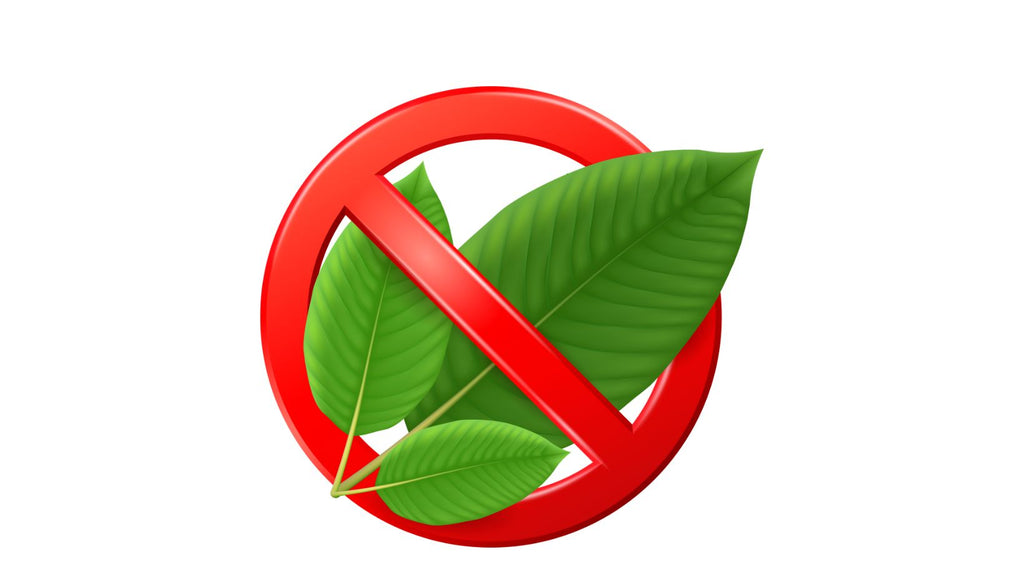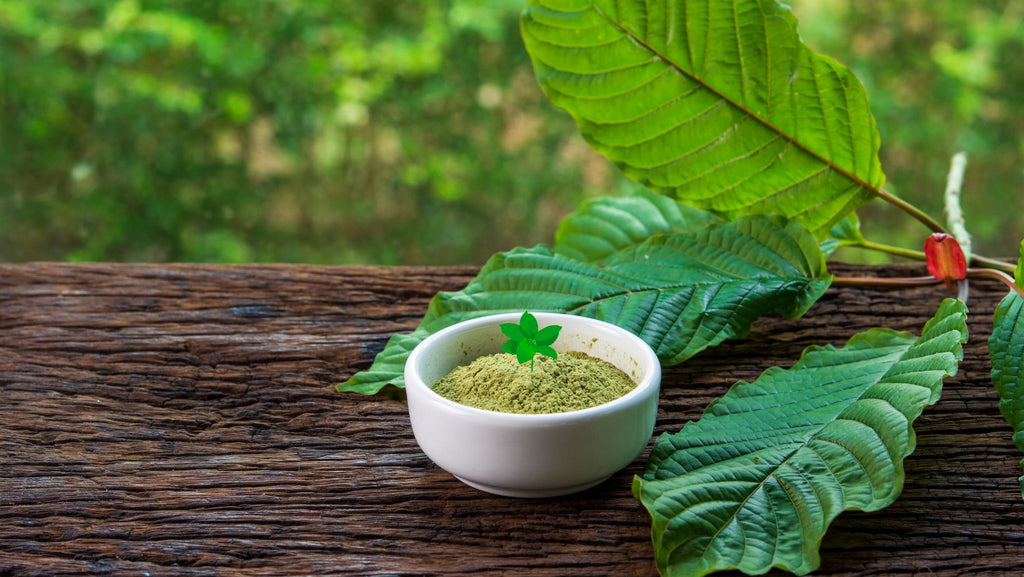
Is Kratom Legal in Arkansas? Full Facts
Is Kratom Legal in Arkansas?
Is Kratom legal in Arkansas? Kratom is currently classified as a Schedule I controlled substance in Arkansas, making it illegal to buy, sell, possess, or use within the state. This status was established in 2016 when the Arkansas State Board of Health responded to concerns about the potential for abuse, addiction, and health risks associated with its use. Despite its growing popularity as a natural remedy in other parts of the United States, Arkansas has maintained a firm stance against Kratom, aligning it with other high-risk substances without recognized medical use.

The decision to ban Kratom in Arkansas was also influenced by a broader national discussion about its safety and regulatory status. Unlike substances such as medical marijuana, which has seen a gradual acceptance under strict regulations, Kratom has not received federal approval or scientific consensus supporting its safety and efficacy. This has left states to make individual determinations, with Arkansas taking a precautionary approach to avoid potential health crises related to its use.
The Current Legal Status of Kratom in Arkansas: What You Need to Know
In Arkansas, any possession or distribution of Kratom is met with strict penalties, reflecting the state’s categorization of it as a substance with no accepted medical use and a high potential for abuse. This aligns with the federal perspective, as the DEA has listed Kratom's primary alkaloids—mitragynine and 7-hydroxymitragynine—as substances of concern. Residents of Arkansas are currently under a mandate that prohibits the use of Kratom, which has significant implications for individuals seeking alternative treatments for chronic pain, anxiety, or depression.
This legal stance places Arkansas among a minority of states with such stringent prohibitions. The state's health authorities argue that the decision is rooted in a lack of comprehensive clinical trials demonstrating Kratom's safety and effectiveness.
However, this position has sparked a considerable amount of debate within the community, with advocates suggesting that the state should reconsider its stance based on emerging research and comparative analyses showing more lenient regulations in other states.
Historical Changes in Arkansas’s Kratom Laws
Kratom, derived from the leaves of the Mitragyna speciosa tree native to Southeast Asia, has been used for centuries as a traditional medicine. In Arkansas, the legal status of Kratom underwent significant changes in recent years, reflecting broader trends and debates occurring across the United States.
Prior to 2016, Kratom was legally available in Arkansas without any restrictions. It was commonly sold in health food stores, smoke shops, and over the internet. Marketed as a natural supplement, it gained popularity for its ability to manage pain, boost energy, and potentially help with opioid addiction recovery. This period of unrestricted availability allowed for a growing user base who valued Kratom for its therapeutic effects.
However, this unrestricted access came under scrutiny as concerns about the safety of Kratom and its potential for abuse began to emerge. Reports suggesting a risk of dependency and negative side effects prompted a reevaluation of its legal status. This shift was part of a wider trend during that period, where several states and local jurisdictions across the U.S. began to scrutinize the legality and safety of Kratom more closely.
Arkansas's Legislative Change in 2016
In response to these growing concerns, the Arkansas Department of Health acted decisively. In 2016, Kratom was reclassified as a Schedule I controlled substance, aligning it with drugs deemed to have a high potential for abuse and no accepted medical use. This reclassification had several immediate and far-reaching impacts:
- Sale and Distribution: The legal sale and distribution of Kratom were immediately halted. Retailers and online vendors were forced to cease selling Kratom products like kratom powders and kratom capsules, affecting both the business owners and consumers relying on these products.
- Research Limitations: The Schedule I status imposed significant barriers to research, limiting opportunities to study Kratom's potential benefits and therapeutic uses. This classification has made it challenging for researchers to obtain funding or approval for clinical studies.
- Access for Consumers: Individuals who had been using Kratom for legitimate therapeutic reasons found themselves suddenly without access to a product they relied on for health management.
Why Is Kratom Banned in Arkansas? Key Factors and Debates
The ban on Kratom in Arkansas, enacted in 2016, highlights a complex intersection of public health policy, individual freedom, and the ongoing opioid crisis in America. The decision by Arkansas state health authorities to classify Kratom as a Schedule I controlled substance was influenced by national concerns about opioid addiction and the risks posed by unregulated drug markets.

Factors Leading to Kratom's Ban in Arkansas
Arkansas's health authorities pointed to several factors to justify the ban on Kratom. Primarily, the potential for abuse and the lack of substantial, controlled, peer-reviewed studies demonstrating its safety and efficacy were cited as major concerns. These factors aligned with a broader national apprehension about opioids and substances that could be abused in similar ways.
Contentious Debate Surrounding the Ban
The ban on Kratom has not been without controversy. Advocates for Kratom argue that it offers a natural alternative to synthetic opioids and could potentially help address the opioid addiction crisis by providing a less addictive pain management solution. They contend that Kratom could be part of the solution rather than a problem if properly regulated.
Legal and Public Health Debates
The decision to ban Kratom has spurred significant debate over drug regulation and access to alternative therapies. Critics argue that the ban was premature and not sufficiently backed by evidence of harm. They believe that the state's decision restricts personal freedom to choose therapeutic and medicinal options. This has led to calls for a reconsideration of the ban, with some advocating for a regulated market that ensures safety and purity standards.
Key Points in the Kratom Ban Debate
- Potential for Abuse: Concerns that Kratom could be abused in ways similar to opioids influenced the decision to ban it.
- Lack of Controlled Studies: The absence of rigorous scientific studies on Kratom’s safety and effectiveness was a critical factor in its classification as a Schedule I substance.
- Opioid Crisis: The ban reflects broader efforts to control substances that might exacerbate the opioid crisis.
- Regulatory Frameworks: Some suggest that instead of a ban, a regulated framework could be established to control the sale and use of Kratom, ensuring it is safe and pure.
- Individual Freedom: Critics of the ban highlight concerns over the restriction of personal freedom to choose Kratom for therapeutic use.
- Public Health Policy: The debate encompasses larger issues of how public health policies balance regulation with access to alternative treatments.
As the debate continues, both sides present compelling arguments regarding the future legal status of Kratom in Arkansas and potentially across other states. This ongoing discussion underscores the challenges faced in crafting drug policies that effectively balance public health, safety, and personal freedoms.
Impact of Kratom's Illegal Status on Arkansas Residents
The illegal status of Kratom in Arkansas affects various aspects of life for those who previously relied on it for therapeutic purposes. Individuals suffering from chronic pain, for instance, who had found respite in Kratom, now face the dilemma of seeking other—potentially less effective—means of pain relief. The ban not only limits treatment options but also places individuals at risk of legal repercussions for possession or use of the substance.

Moreover, the ban impacts economic activities related to the sale of Kratom. Retailers who once legally sold Kratom as a health supplement have either had to remove the product from their shelves or face legal actions, leading to economic losses and a reduction in the diversity of available natural health products. The absence of legal access to Kratom also drives some users to seek the substance through illicit channels, potentially exposing them to greater risks associated with unregulated products.
Kratom Legality in Arkansas vs. Other States: A Comparative Analysis
Kratom's legal status varies widely across the United States, with Arkansas being one of the few states where it is completely banned. This discrepancy in state-level policies creates a patchwork of legality that can be confusing for consumers, especially those who travel or relocate frequently. In states like Florida and California, Kratom is legal except in specific counties, reflecting a more localized approach to regulation. In contrast, states like Tennessee require consumers to be 21 and over, demonstrating a regulatory model focused on age restrictions.
|
State |
Legal Status of Kratom |
|
Arkansas |
Illegal |
|
Missouri |
Legal |
|
Tennessee |
Legal with age restriction (21+) |
|
Mississippi |
Mixed legality (illegal in some counties) |
|
Texas |
Legal |
|
Louisiana |
Legal |
This table illustrates the varying approaches to Kratom regulation, highlighting the complexity of navigating state laws for both users and legislators. The comparison also underscores the potential for legislative changes as more data becomes available and as public opinion shifts regarding the benefits and risks of Kratom use.
Advocacy and Legal Battles: The Future of Kratom in Arkansas
The future of Kratom in Arkansas is likely to be shaped by ongoing advocacy and legal challenges. Organizations like the American Kratom Association (AKA) are at the forefront of efforts to educate lawmakers and the public about Kratom's potential benefits and to advocate for its reclassification. The AKA argues that proper regulation can address safety concerns while allowing access to those who benefit from its use.
Legal battles and legislative hearings in the coming years will play a critical role in determining whether Arkansas's stance on Kratom will shift. Advocates hope that as more research emerges and public opinion continues to evolve, state legislators will be persuaded to adopt a more nuanced approach to Kratom, potentially leading to a regulated, legal market.
The Bottom Line
While Kratom remains illegal in Arkansas, the state's residents, lawmakers, and advocacy groups continue to debate its status. As scientific research progresses and public attitudes shift, there may be potential for change in how Kratom is perceived and regulated. For now, Arkansans must navigate the complexities of the law while considering both the legal implications and the potential health benefits of Kratom.
Frequently Asked Questions About Kratom Laws in Arkansas
What are the penalties for possessing Kratom in Arkansas?
Individuals caught with Kratom can face serious charges, including fines and imprisonment, similar to penalties for controlled substances.
Can I legally purchase Kratom in neighboring states of Arkansas?
Yes, in states where Kratom is legal, Arkansans can legally purchase it, though they must be cautious about bringing it back into Arkansas.
What are the arguments for legalizing Kratom in Arkansas?
Proponents argue that Kratom is a safe alternative to prescription opioids for managing pain and could help alleviate the opioid crisis.
How can I get involved in advocacy for Kratom in Arkansas?
Joining organizations like the American Kratom Association and participating in local and online advocacy campaigns are effective ways to get involved.
Has there been any recent legislative activity concerning Kratom in Arkansas?
As of now, there are no pending bills or legislative efforts in Arkansas aimed at changing the legal status of Kratom, but advocacy groups continue to push for reconsideration.
Share

